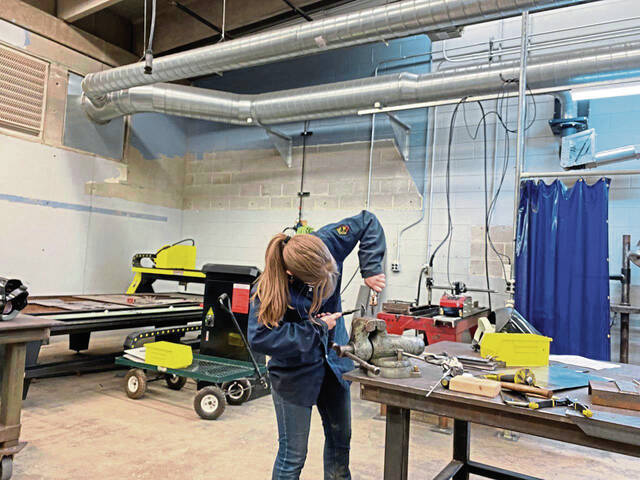This week, the state’s Basic Education Funding Commission (BEFC) will meet in Pittsburgh to gather testimony from educators and education advocates on the state of public education in Pennsylvania. Considering the Commonwealth Court’s ruling this year declaring the state’s funding of public education to be unconstitutional, the BEFC is tasked with writing a report that should be a roadmap for the General Assembly and Gov. Josh Shapiro to close the gap between the “have” and “have not” school districts across the state.
Part of the job of the BEFC is to address unmet needs beyond basic education funding, such as facilities, special education and pre-K, to provide meaningful opportunities for all Pennsylvania public school students.
Another component critical to enabling all students the opportunity to reach their full potential is career and technical education (CTE), one of the major topics of the BEFC meeting in Pittsburgh. CTE prepares students for a wide range of careers like information technology, health and science lab technicians, construction management, welding, carpentry, and other trades.
CTE programs in Pennsylvania face significant challenges that require urgent attention. The current funding formula for these programs is outdated and fails to adequately support career-related learning opportunities for high school students. In CTE, as with other K-12 school programs, there are significant disparities in access between high-wealth and low-wealth school districts.
Here are some recommendations for Shapiro and the General Assembly to consider next year to close the CTE opportunity gap and provide more equitable and robust career-related learning opportunities.:
1. Increase funding for CTE: The state should allocate an additional $200 million to CTE funding. This will enable schools to expand their CTE programs to serve all the students who want them. It can enhance curriculum development and provide necessary resources for students to gain hands-on experience in their chosen career paths. It will also support the recruitment and training of qualified instructors who can effectively deliver industry-relevant education.
2. Improve equipment funding: Allocating an annual increase of $11 million for equipment in CTE programs will ensure students have access to modern, up-to-date tools and technologies that align with industry standards. By providing state-of-the-art equipment, Pennsylvania can better prepare its students for the demands of the workforce and enable them to compete in today’s rapidly evolving industries. Additionally, the state should develop a more equitable allocation of equipment funding, considering the variance in the local wealth of school districts.
3. Enhance dual enrollment opportunities: Investing $10 million in competitive grants for dual enrollment programs is a strategic move that will benefit high school students. Dual enrollment allows students to earn college credits at no cost while still in high school, providing them with a head start on their higher education journey and reducing their need to take on student debt.
4. Expand pre-apprenticeships and apprenticeships: Pennsylvania should expand high-quality pre-apprenticeship and apprenticeship options for high school students. These programs provide valuable hands-on training and the opportunity to earn industry-recognized credentials, creating additional pathways to good jobs. By encouraging more apprenticeship programs to provide college credit for their classroom instruction, the state can also enable more students to progress toward post-secondary degrees while gaining practical experience and access to family-supporting careers. High-quality pre-apprenticeships serve as an on-ramp to apprenticeship programs, helping students assess their interest in specific occupations and understand the skills and credentials needed for success.
5. Strengthen business-led partnerships: To ensure the success of career-related learning programs, it is crucial to strengthen partnerships between schools and businesses through direct subsidies or tax credits that incentivize and support business-led sector partnerships. These partnerships align student career pathways with industry needs, providing work-based learning opportunities and facilitating seamless transitions from education to employment.
By fostering collaboration between schools and employers, Pennsylvania can ensure that career pathways lead to well-paying jobs and meet the evolving skill needs of industries.
These steps can be part of a remedy for our unconstitutional school funding system so that all students gain the opportunity to succeed, but also help cure the challenges Pennsylvania employers face in finding qualified workers in careers that are in high demand.
It is time for Pennsylvania to prioritize career-related learning and commit to building a robust and inclusive CTE system. Neglecting the imperatives beyond basic education funding like CTE in its final report would be a failure on the part of the BEFC to fulfill its obligations.
By implementing the measures outlined above, Pennsylvania can ensure its high school graduates are well-prepared for the challenges and opportunities of the 21st-century economy. Let’s invest in our students and empower them to thrive in the workforce of tomorrow.
Stephen Herzenberg is executive director of the Keystone Research Center.








